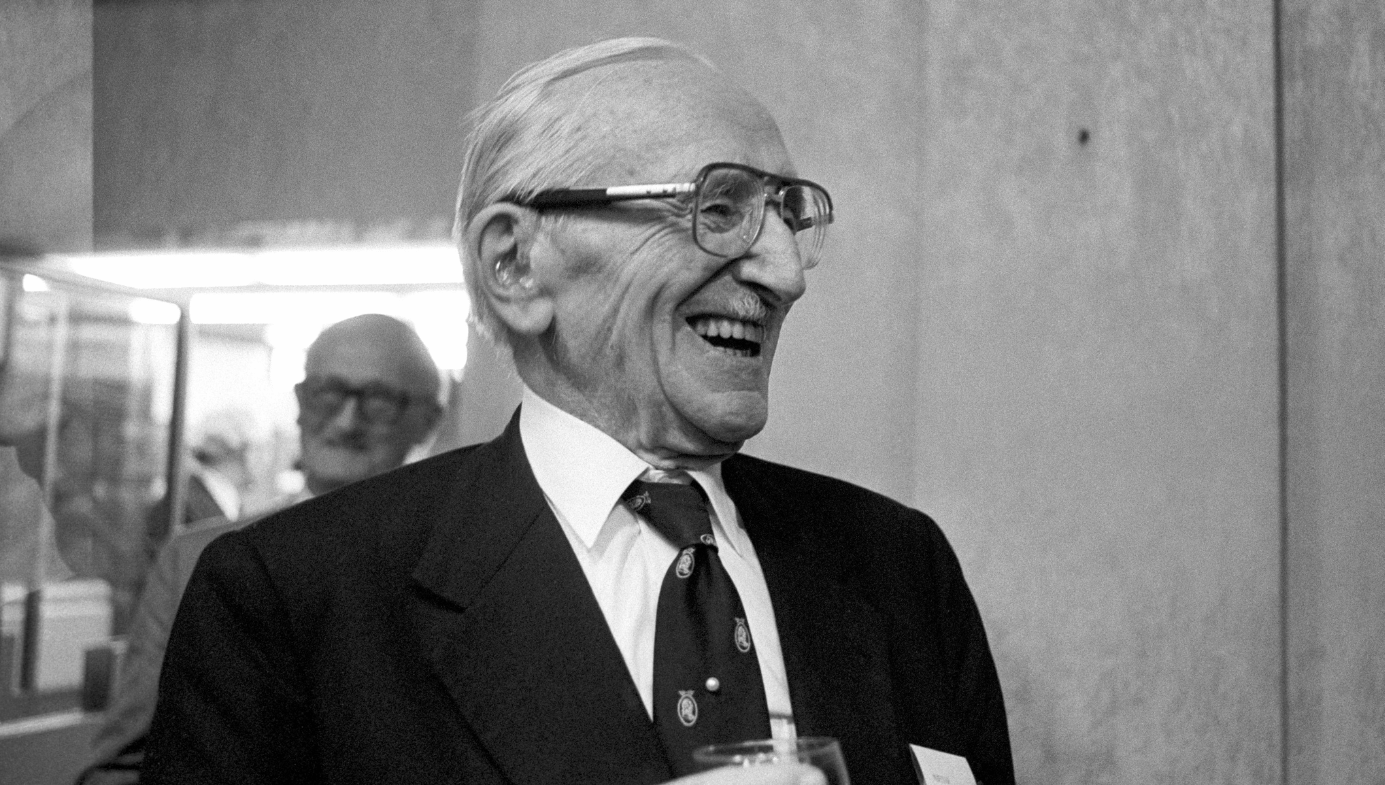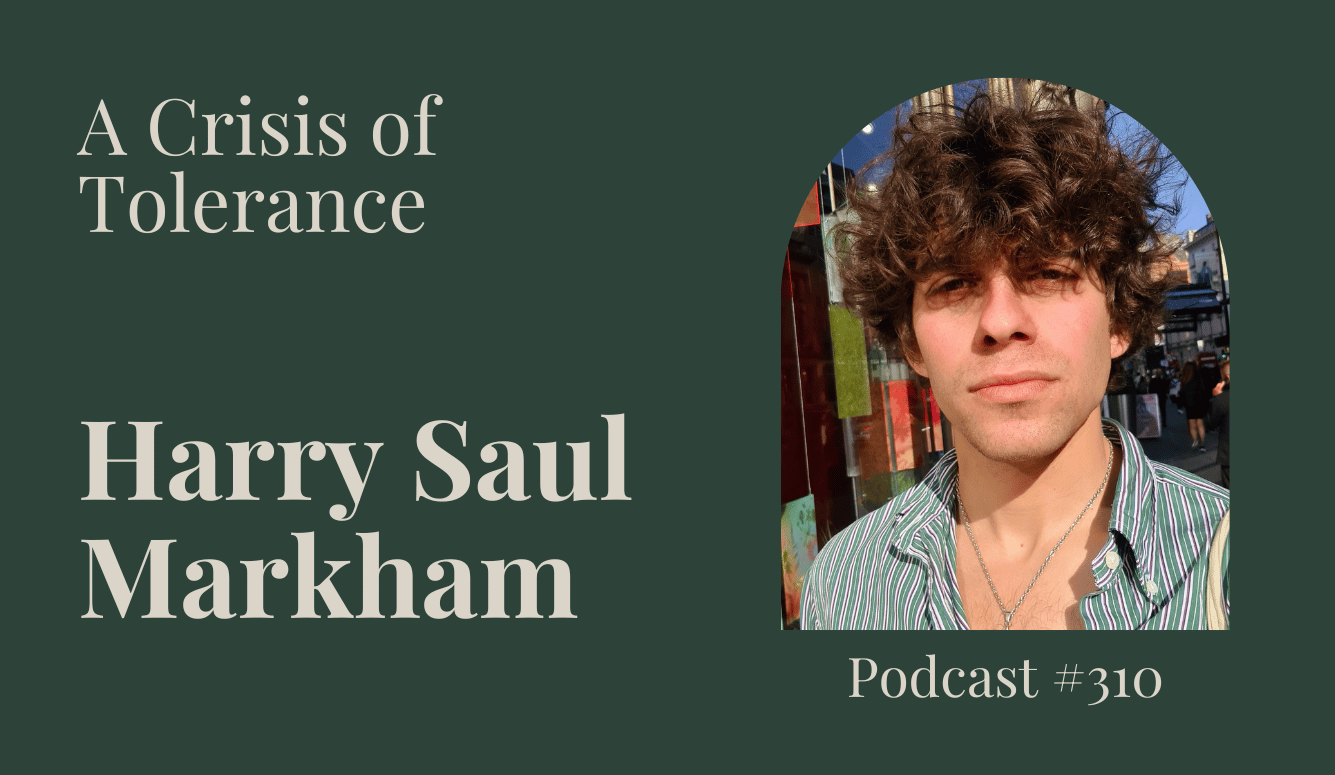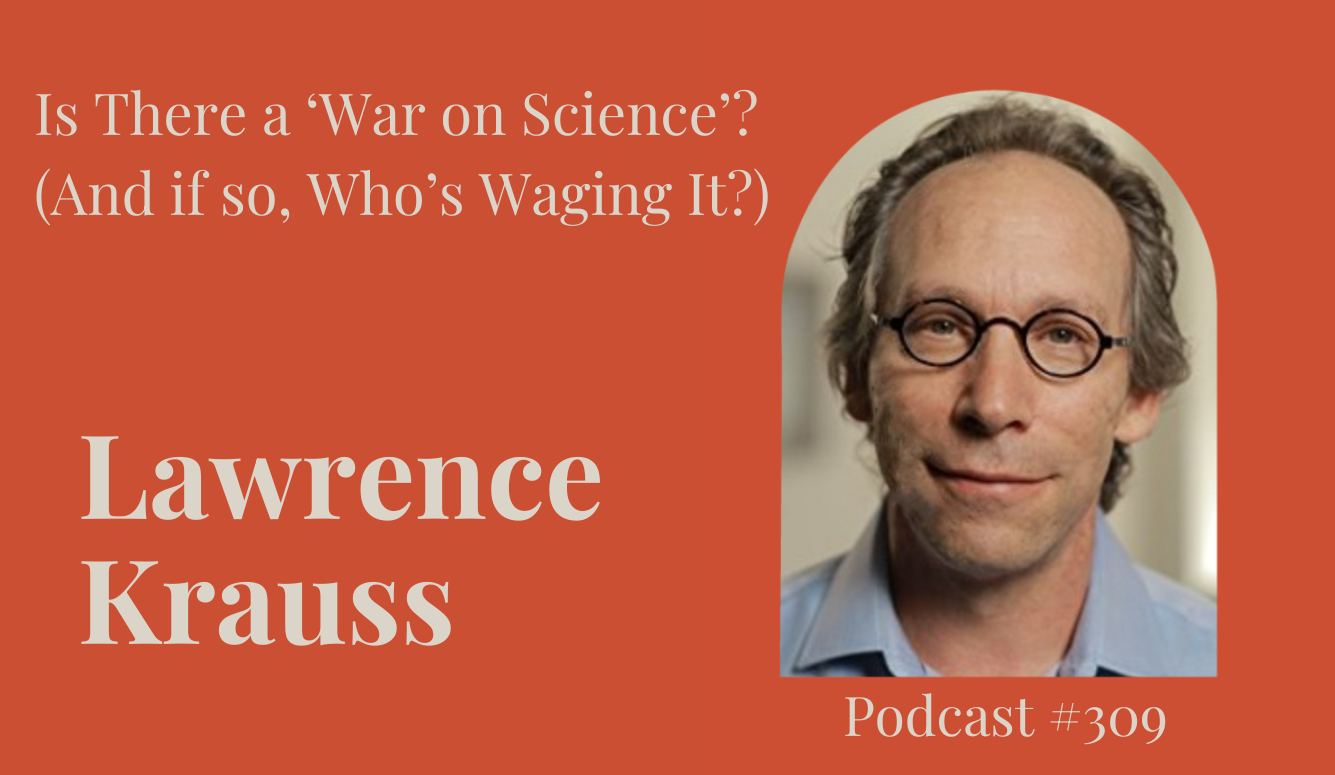Art and Culture
Breaking Up With Libertarianism
After discovering the work of Dr Williams, I parked myself under his learning tree and began to soak up as much information as I could.

Editor’s note: Imagine a city floating in the middle of the ocean, where everyone has a gun and no-one pays taxes. This essay is about how skepticism of extreme policies prompted one Australian individual to leave his political tribe.
It was just after the Global Financial Crisis when my brother Stephen and I began talking about an incredible book he had recently read called The Birth of Plenty, which documented how man evolved from cave-dwelling primates to urban sophisticates. Intrigued by the book, I followed up by asking if there was anything else about economic progress I should learn about. He began telling me with great enthusiasm about John Maynard Keynes, deficit spending and pump priming. I had no idea what those terms meant at the time, but I promised my brother I would research those terms and learn more about them.
The person I eventually discovered to explain the meaning of pump-priming was a balding, bespectacled older gentleman by the name of Milton Friedman and by chance the video series I had stumbled onto was his late seventies/early eighties television classic Free to Choose. I was hooked from the get-go. Free to Choose was a well-crafted, well-argued series explaining economic history and giving practical examples of economic theory in action. It also featured a host who was engaging, thoughtful and humane.
Sure the clothing and the music was just a tad antiquated, but the arguments were timeless – by sticking its nose where it didn’t belong, government was a hindrance. Free markets unleashed innovation, rewarded those who produced the goods and services required by society and lifted millions out of poverty.
I found myself wondering at some point in 2008/2009 what Dr Friedman would say about the Global Financial Crisis only to discover the poor man had died in 2006. Fortunately this is where the Free to Choose series and a stroke of luck came into play. At the end of each Free to Choose episode a round-table discussion would be shown. It would inevitably be a group of four people, with two in favour of Dr Friedman’s arguments and two against. One of the panelists I noticed was a black professor who, at the time of the series, was on the young side of middle-age. Thinking his relative youthfulness would increase the chance of him being alive today, I found the website of George Mason University professor Walter Williams. Not only did he explain how the Community Reinvestment Act contributed to the Global Financial Crisis, to my delight he had an entire archive of articles, all of them written in clear, easy-to-follow language.
After discovering the work of Dr Williams, I parked myself under his learning tree and began to soak up as much information as I could. His ten part Economics for the Citizen was an incredible read and just inspired me to keep learning and discovering more about economics and liberty. I was excited — that wonderful feeling when you discover something new and can’t control your enthusiasm. I quickly discovered other brilliant libertarian economists like Russ Roberts and his Econtalk channel.

While the fire burnt bright there for a time being, my enthusiasm for libertarianism eventually sputtered out. I outline here the three stages of leaving libertarianism:
Stage 1: Realising libertarian ideas have low/non-existent odds of being implemented.
Here’s a brief rundown of some general libertarian proposals which will never come to pass (in Australia) — abolishing the minimum wage, eliminating government welfare, legalising all drugs, privatising the police, scrapping public education and replacing government-issued money with privately issued money. Some libertarians in countries like Australia and Great Britain are also hoping – vainly – for the elimination of all gun control. For the sake of brevity, I will concentrate on just a couple of these ideas and why they won’t come to fruition.
One of the first things a fresh-faced libertarian will learn is the damaging effects of the minimum wage. After all, how is your average Joe supposed to climb the ladder of economic opportunity if the minimum wage forces employers to pay more than they can afford for his services? In Australia the biggest champions of an industrial relations system where employees and employers can negotiate without interference from the government is the HR Nicholls Society, an Australian industrial relations think tank with policies that are backed by most libertarians. So far their efforts haven’t yielded much. Sure the free-marketers might get the occasional Dollar Sweets victory here and there, but the Australian government’s protection of wages and conditions of workers is a permanent fixture here.
Attempts by libertarians (or libertarian-leaning conservatives) to strip work entitlements usually fall by the wayside. The greatest stumbling block they face is the people whose opinions matter the most — Australian voters. Recall the libertarian inspired IR policy during the final years of the Howard government WorkChoices. It resulted in John Howard, one of our most stable prime ministers and Peter Costello (our second greatest treasurer) being swept from office.
John Howard certainly wasn’t the only conservative to take the libertarian bait. In 1993 then-Liberal party leader John Hewson was seemingly ready to waltz into the Lodge when he brought out his Fightback! Plan, which included proposals to dismantle Medicare, scrap entitlements for employees, restrict welfare, and so on. Surely the public, after enduring a decade of Labor, would embrace this libertarian wet dream? Well no, actually. Keating was returned with an increased majority.
Another favourite of the Australian libertarian crowd is gun-owner rights. In Australia owning a gun for self-defence purposes is illegal. You can only own and keep a weapon if certain strict conditions are met. There seems to be no hunger or desire from the Australian electorate for changes to present gun laws. Yet the party which preaches libertarian ideas the loudest, the Liberal-Democratic Party (LDP), are pushing for changes in gun ownership laws.
For a relatively new party trying to woo new voters this is crazy – of the tiny fraction of people to whom gun laws are a pressing matter, almost all will vote for the Shooters and Fishers Party. So far the LDP has had one minor victory, joining Motoring Enthusiast Party senator Ricky Muir and Australia Party MP Bob Katter in successfully calling for the government to scrap plans to place restrictions on the importation of the Adler A110 shotgun.
***
Libertarians occasionally point to conservative politicians such as Ronald Reagan and Margaret Thatcher as proof of their success. After all Margaret Thatcher scrapped the minimum wage, dismantled National Health, sold the BBC….and Ronald Reagan abolished the FDA, legalised all drugs, and scrapped the Federal Reserve….
Just kidding. Neither of them did those things. I guess by libertarian standards Margaret Thatcher and Ronald Reagan were failures. But this simply highlights the dependency of libertarians on conservatives — because they are unable to gain a foothold in government on their own credentials except when they’re pretending to be another party.¹ To illustrate, consider the United States Libertarian Party, which has never gained more than 2% of the national vote. Even Milton Friedman thought it was a better idea to bypass them in favour of joining the Republican Party.²
This is what libertarianism boils down to — impotently sitting on the sidelines hoping conservatives will do the job they can’t. But most smart conservative politicians will not give serious consideration to the electoral poison of libertarian ideas. For example in 2013, the Institute of Public Affairs pleaded with incoming Australian Prime Minister Tony Abbott, to adopt a 75-point plan of action upon assuming office. So far, only three (or is it four?) have been enacted.
***
Even if libertarians could better persuade conservatives to champion their ideas, it may not make much difference given that one of the biggest obstacles to their desired free-market utopia is the right of women to vote. Take a brief overview of the libertarian community and you will find that men outnumber women by a ratio of approximately 999 to 1. There have been more sightings of Bigfoot and the Loch Ness Monster, than there have been of female libertarians.
Women aren’t embracing free-market ideals. Research by John Lott has shown that the rise of female voting is closely linked with the growth of government. As long as women are eligible to vote, libertarianism will remain a (mostly) male fantasy.

Stage 2: Realising Libertarians are weird.
I’ve discussed how some libertarian ideas are, to be polite, a bit far-fetched. Some Libertarian ideas, however, go beyond the realms of rationality into shark jumping territory.
As an example let’s look at a favourite thought bubble among libertarians — seasteading . In the future libertarians are supposedly going to be moving into (at this point) hypothetical cities out in the ocean. Presumably the majority of the people living in these cities will be libertarian. Allow me to touch on a point I made earlier — considering how few female libertarians there are, exactly how are these people going to breed? I suppose it will be somewhat amusing to see Smurf-like environments in which every male is competing for the affections of the designated Smurfette; however it doesn’t sound realistic to me.

Seasteading isn’t the first shot at creating an entirely libertarian habitat. Much fanfare was trumpeted over libertarian cities being built in less-developed countries such as Honduras and Panama. Needless to say Panama didn’t turn out as well as expected and Honduras is struggling to get off the ground (Do not under any circumstances ask libertarians why they simply don’t move to the regulation free utopia of Somalia. Libertarians get extremely tetchy about that).
Let’s look a little closer to home. One quirky characteristic of libertarians is viewing failure as success. In December 2014 libertarian LDP senator David Leyonhjelm introduced a bill to eliminate Family Tax Benefit A for those on $90,000p.a or more. The result was as follows:

That’s David Leyonhjelm on the left by himself, achieving exactly one vote – his own. The average person upon seeing the above picture would come to the perfectly rational conclusion that the senator had failed and failed badly. Not so, says the LDP who rushed to the senators defence and were quick to romanticise the ‘us vs them’ narrative with comments such as “One man stood alone against the crowd”, “the beautiful solitude of being right” and on and on.
In the recent North Sydney by-election LDP candidate Sam Kennard garnered a whopping 2% of the vote, managing to do only slightly worse than the Sustainable Population Party and slightly better than The Arts Party. This piddling effort was hailed as a victory by libertarians because of the “quality” of the votes received. This is success – libertarian style.
If you can find one, ask your local libertarian what his (it will almost always be a ‘his’) opinion is regarding the ride-sharing service Uber. Chances are his eyes will light up and he will go into a ten-minute (minimum) rant about the free enterprise system enabling market-disrupting technology to displace an antiquated government controlled cartel and so on. The way libertarians talk about Uber you’d swear they actually invented it themselves and were largely responsible for its expansion.
But what about the taxi drivers protesting Uber, many of whom have a limited education, families to feed and few opportunities for alternative employment? How do libertarians respond when a certain section of workers suddenly find their (meagre) income at risk – with a modicum of sympathy and understanding? No, of course not… they laugh at them. While job losses and market place changes will occur from now until forever, the indifference towards low-income workers affected by these changes should provide an indication as to why libertarians are so few in number.
Stage Three: Realising you don’t want to live in a world run by libertarians.
While it’s true that libertarians will never achieve anything meaningful in a political sense and are sorely lacking in people skills, what if… by some miracle… libertarians actually had a chance to be in charge of the country? If they did I still wouldn’t vote for them. No way.
Let’s look at the libertarian policy of legalising all drugs. I don’t use them, though I did briefly dabble with marijuana back in high school. Personally I don’t really care if my neighbours or the people around me are smoking a joint. The perception of marijuana is that it is a soft, commonly used recreational drug. Pot is semi-legal in some parts of Australia and completely legal in two states of the USA. It’s when we begin discussing more severe drugs that I shed any libertarian notions of legalising all illicit substances. I have no desire to live next door to people using crack, cocaine, heroin, angel dust or ice. I wouldn’t want drug users hanging around my local shopping centre or loitering on the streets.
Libertarians will usually bring up the prohibition-era as a counterargument, as if injecting heroin was no different to having a beer. They would also argue that people who voluntarily use these drugs are doing no harm to anyone but themselves and criminalising their activities is an affront to their individual dignity. Sorry libertarians, but no sane person will ever vote to legalize all drugs – even the Greens aren’t that crazy.
Shortly after I began my first job in the tourism industry, one of the first sales lessons I learned was that customers are tuned into station WIIFM – What’s In It For Me? For instance nobody buys a drill because they want a drill – what they really want is a hole. When I reflect on the libertarian idea of scrapping government welfare and the minimum wage, I cannot see What’s In It For Me. I am not a wealthy man. If I were terminated from my job (or if my wages were drastically reduced), I would be screwed. This would be of no concern to libertarians, but it would certainly matter a great deal to me.
Libertarians assure us that private charity and the demands of the market will ensure the prosperity and well-being of citizens. But government welfare and the minimum wage serve as useful tools to me right now – they are a bird in the hand, compared to the two in the bush being offered by libertarians (to their credit both Hayek and Freidman advocated for a minimum income in place of welfare and the minimum wage – and were subsequently damned as socialists by Ludwig Von Mises).
The final factor against radical libertarian change for me personally is inertia. I live in a peaceful country with friendly people, clean water, regular garbage removal and the iPhone-six plus. I’m too content, too satisfied and too busy enjoying life to want Australia drastically altered by ideological puritans.
A sop to libertarians
Libertarians push for ideas that never happen, hope for outcomes which are unrealistic and are generally ignored by the mainstream. But I confess to still having a soft spot for them. When I see one talk about the benefits of scrapping fiat money with the enthusiasm of an eight-year old writing a letter to Santa, it provides a warm feeling. Sure it won’t happen, but everyone has the right to dream.
And libertarians do occasionally have interesting things to say. Thomas Sowell’s Basic Economics and John Lott’s Freedomnomics should be required reading for anyone hoping to get a solid grounding in basic economic concepts. Online bloggers such as Captain Capitalism, Mike Munger and Stephen Livera stoke the few remaining libertarian embers within me. Much like Milton Friedman in Free to Choose they all have engaging communication styles. And reading some archived articles I had saved from my libertarian years as research for this piece brought a smile to my face – like catching up with an old friend you haven’t seen in years.
I may have left the house of libertarianism and will probably never move back, but it’s still nice to drop by and visit once in a while.
Footnotes
[1] The Liberal Democratic Party won its sole seat in the Australian Senate by drawing first place on the ballot paper resulting in votes from people confusing it with the major conservative party in Australia, the Liberal Party.
[2] “I believe that I can do more good by having influence with the Republican Party than I can by joining the Libertarian Party, although I have great sympathy with the Libertarian Party.”






